Review of Commissar, The (2-Disc Edition)
Introduction
Few films can boast a history as troubled as that of Aleksandr Askoldov`s `The Commissar`. The 1967 feature was made in one of the techiest periods of Soviet censorship, shortly after the Khrushchev Thaw, and the Goskino (the USSR`s iron-fisted equivalent of a film board, albeit with supreme governmental decree) were angered by the portrayal of Jewish oppression and anti-Semitism in the revolutionary setting, particularly as anti-Zionist policy at the time was under careful scrutiny by watchful world eyes. When Askoldov refused to fall into line and make changes, he was booted from Moscow and the film was shelved, followed by every copy apparently being destroyed. It was only the imminent fall of the Soviet Union that saw the film, which had somehow survived total communistic decimation, being polished off, re-assembled and released in 1988.
It`s 1920s Russia, and Red October three years previous has led to civil war. Political commissar Klavdia Vavilova, on the frontline with the Red Army cavalry, discovers she`s pregnant. The expectant mother is forced into housing with a poor Jewish family who are to look after her until the child is born. Despite initial tensions, the battle-hardened soldier soon finds life with Yefim, Maria and their brood of six to be eye-opening and even enlightening. When the anti-communist White Army marches on the town, the family are forced to board themselves in the basement in preparation for an anti-Jew pogrom riot, and the ensuing revelations in conversations between Vavilova and the family make the commissar realise she has to make a difficult decision.
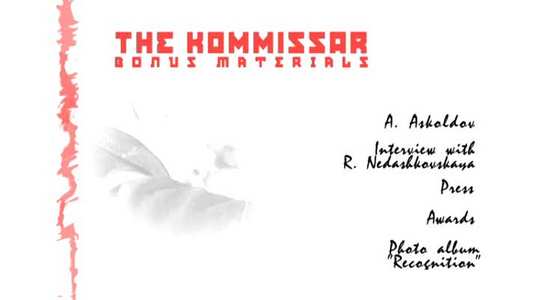
Video
A nice, wide original AR of 2:35.1 in anamorphic, but the 1960s budget restraints, Soviet film storage facilities and Father Time haven`t been kind to this print of `The Commissar`. The copious amounts of grain and monochrome shimmer on show - not mention a little film-warping near the beginning - make it look 20 years older than its late-sixties vintage. The DVD cover claims there`s been some digital restoration work done on the transfer, but it`s hard to see where; there`s plenty of dirt and scratches here that could have been given the Mr Muscle treatment if that was the case. Pants on fire? Possibly.
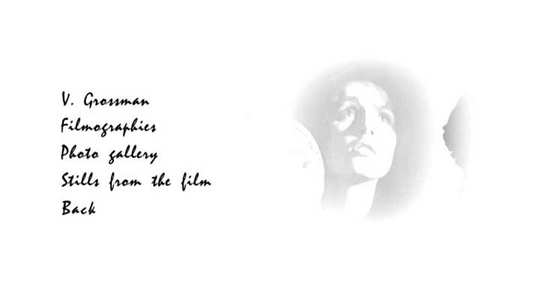
Audio
There`s a choice of Dolby Digital 5.1 in both native Russian and an English dub, as well as the original Russian mono. We`ll skip right over the English dub, as if you`re likely to choose this for your listening pleasure, we probably lost you in the first paragraph of the review. The Russian 5.1 is surprisingly spry, especially as the soundtrack is rather timid and low-key. There isn`t a great deal of movement, with dialogue straight down the barrel, but it isn`t afraid to kick off the speakers at its disposal; off-camera characters will be heard from the respective left or right fronts, rumbles are both heard and felt from the .1, and set-piece effects will travel between the front and rear soundstage where an engineer has thought it prudent. The original mono is, well, the original mono. It sounds fine, with only the slightest of hisses that may or may not be a reviewer`s sound system volume up too high... I kid - it`s fine, purist-types.
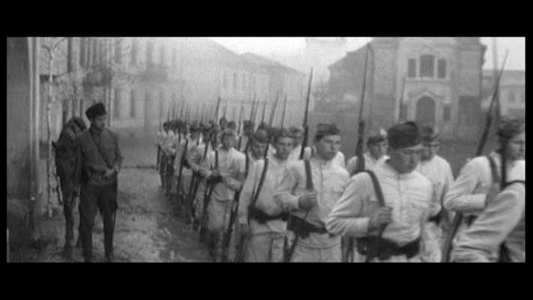
Features
A decent enough selection of extras, the bulk of which can be found on the second disc, but a few alongside the feature on disc one:
There`s an interesting, although too lengthy, 40-minute interview with director Askoldov, and a much shorter and more light-hearted yak with Raisa Nedashkovskaya (Maria). There`s also some vintage (read: mastered from ancient VHS) interviews with Nedashkovskaya, Nonna Mordyukova (Vavilova) and Rolan Bykov (Yefim).The Bykov interview lasts into the double digits, while the other two run for under 4-minutes apiece; these prove fascinating, especially Mordyukova`s comparison of Askoldov to John Lennon.
A section entitled `Letters` houses apparent correspondence in relation to the film and the nature of Askoldov`s film-making; one features a `case history` of the man, which sets out an argument for burning the 35mm at the stake, the other is a letter to the General Secretary of the CPSU Central Committee making the case for the film`s eventual release. The lack of any proper documentary on `The Commissar` leaves this section, aside from interviews, as the only real clues into the battles that were waged over the controversial film.
There are also biographies, filmographies, picture galleries and plentiful press materials spread across the discs.
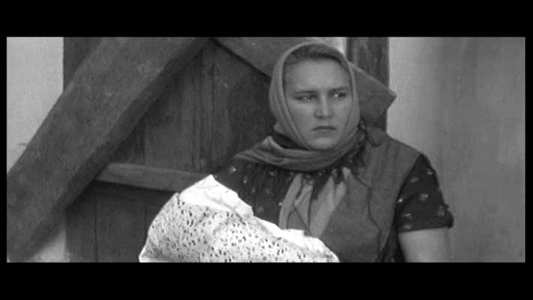
Conclusion
There`s been plenty of adjectives bandied about in relation to `The Commissar`; "Powerful, "Dazzling" and "Brave" being just a few. But perhaps the one that sums the film up best is `substantial`, or maybe `important`. It`s certainly all of these things, and the magnificent central performances, particularly that of Rolan Bykov as the optimistic dreamer Yefim, are just the fringe of what makes this a valuable viewing. When you examine it, the tale of strangers enriching each other`s lives for a brief time before parting as better people has been told a thousand times, but rarely has it been told with such compassion, conviction and insight into the will of humanity. It`s a superb piece of film-making, and Askoldov`s eye for the aesthetic and his grasp of the visual language is comparable to the great directors of the 20th century. But it`s his ability to juxtapose this with a moving and monumental story under such political constraints and against every odd that marks him out as a visionary, perhaps decades ahead of his time. It`s a real shame that `The Commissar` would be his only work.
The film is filled with several infinitely memorable moments, but as visually accomplished as they are, it`s the sentiment behind them that makes them stick around long after the film is finished. The barbaric games that children play, mimicking the brutality of the day, results in one child being attacked by her siblings, but it`s not the sight of her crying for her mother that has the impact, it`s the comment Askoldov is making about the children absorbing their harsh surroundings. But possibly the most gut-wrenching scene, however, is Vavilova`s prophetic dream envisioning the future for Yefim and his family; the screen is hued a blood-crimson as she sees the concentration camps 20 years before the horrific genocide would takes place. It`s these moments, along with a general sense of accomplishment and viewer humility while watching it, that makes you gracious for the ineptitude of commie film-burning committees. The film deserves a rich and wide audience, and although that`s something such a niche film is destined never to receive, this reviewer feels a greater appreciation of cinema after watching it.
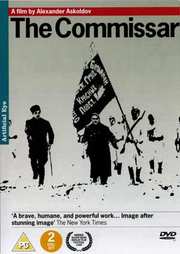
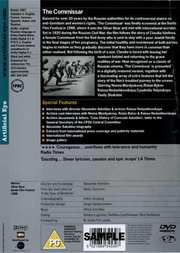




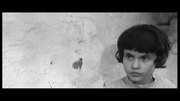
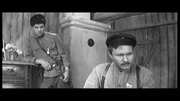
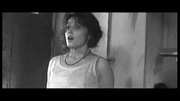
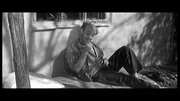
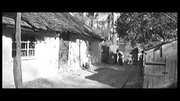
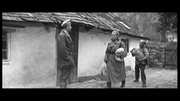
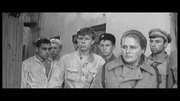

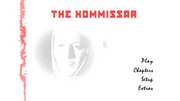
































Your Opinions and Comments
Be the first to post a comment!